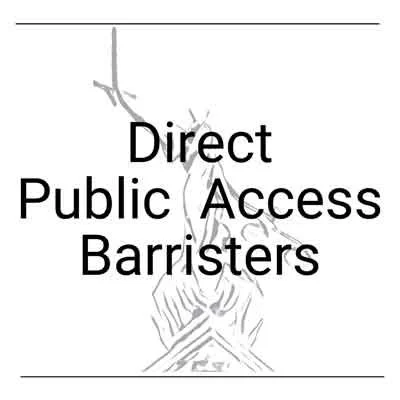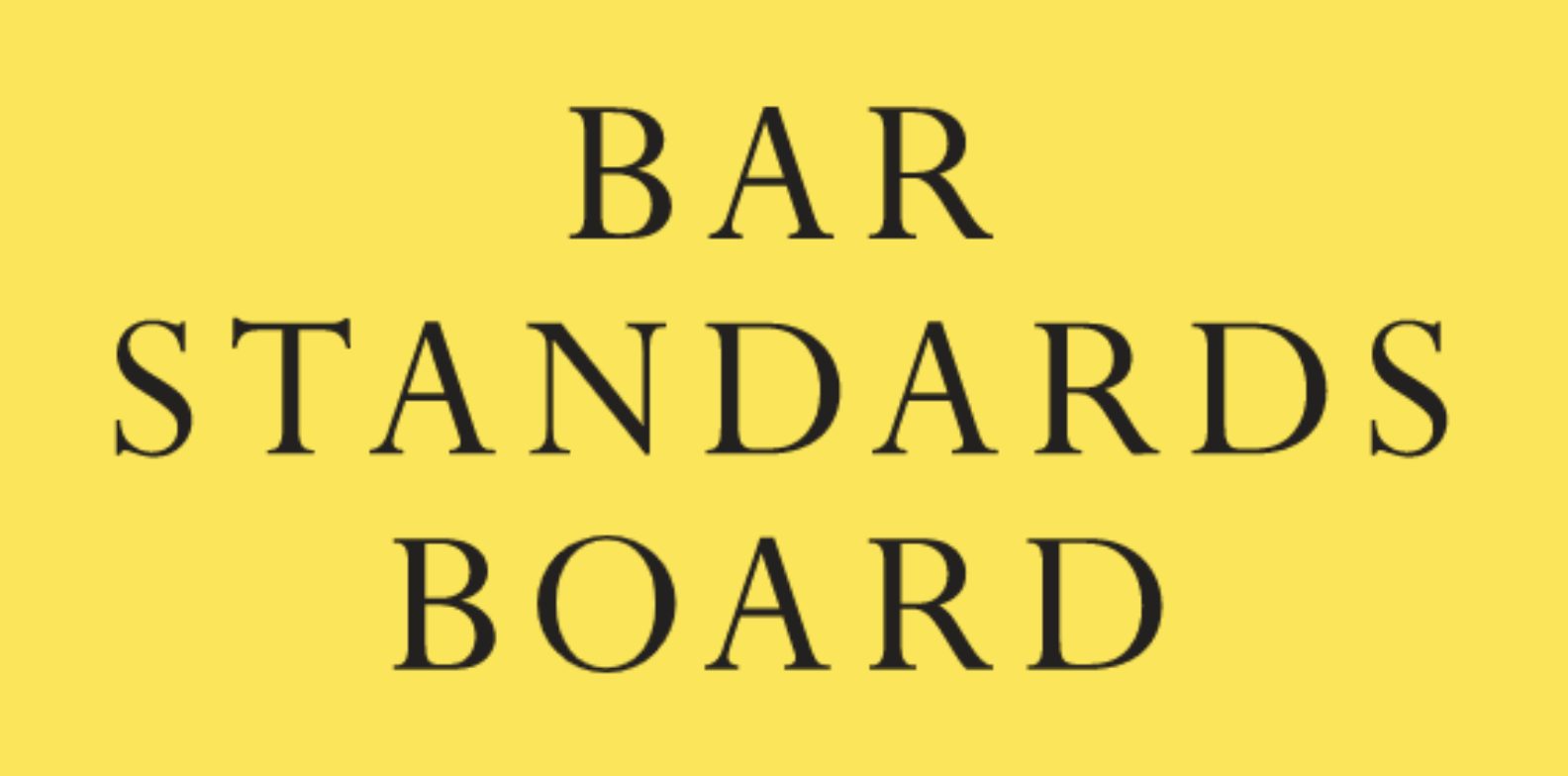Instructing a Barrister Direct
All Contents > Barristers & Solicitors > Direct Public Access Barristers > Going to Court? 10 Essential Tips
“Traditionally, only a solicitor could instruct a barrister on behalf of a client ... Times have changed and now barristers are often instructed direct by members of the public.”
On this page:
This page is provided free. Please subscribe to all specialist content.
Can I instruct a criminal barrister direct?
You can directly instruct any criminal barrister who is ‘Public Access Qualified’ to advise and represent you.
Traditionally, only a solicitor could instruct a barrister on behalf of a client, meaning you would start by going to a solicitor with your legal problem, who would then instruct a barrister for specialist legal advice or representation at court if required. You would then be paying for not one but for two lawyers. Times have changed and now barristers are often instructed direct by members of the public. This is often referred to both as Public Access and Direct Access (and sometimes as Direct Public Access).
In some cases, you will be better off having both a barrister and solicitor represent you, and sometimes a solicitor will be a better option than a barrister. You can read more about this below.
What work can a criminal barrister do for me?
Criminal barristers can carry out a vast amount of work for clients who instruct them direct in criminal cases.
This includes:
Representing you in court, at pre-trial hearings (relating to case management or legal arguments), at trial in the Crown Court or magistrates' court, at sentencing hearings and in appeals at the Crown Court, Court of Appeal, High Court and the Supreme Court.
Listening to your side of the story and advising whether this amounts to a legal defence to the charge you face. Your barrister will usually meet with you in conference to obtain all the necessary details of your case to advise you.
Advice on the law. Many cases have legal complexities and your barrister can advise on the law as it applies to the facts of your case.
Advice on the strength of the prosecution case, and the strength of the defence case. After the prosecution has served its case, a barrister can advise whether the evidence supports the charge against you. After listening to your side, you can also be advised on the strength of your defence.
Advice on case preparation and procedure in a magistrates’ court trial and a Crown Court trial;
Advice on sentencing, including the likely sentence in the event you plead guilty or are convicted of the offence following trial, including prison sentences, community orders, fines and costs;
Advice on pleading guilty, including credit for a guilty plea, plea bargaining, basis of plea and advance sentence indications;
Advice on technical issues, such as prosecution disclosure and defence disclosure, how to respond to prosecution applications to introduce previous convictions (bad character), hearsay evidence or Special Measures for witnesses; the admissibility of evidence the prosecution seek to rely upon, or the availability of defence applications which could prevent the case continuing, such as Applying to Dismiss the case or making an Abuse of Process application;
Advising on grounds of appeal against conviction and appeal against sentence, including other appeals (such as prosecution appeals against unduly lenient sentences or against terminating rulings).
Drafting grounds of appeal against conviction and sentence, including assistance with applications to the Criminal Cases Review Commission (CCRC).
Where can I find a Public Access barrister?
Searching for a barrister
You can search for public access qualified barristers using:
The Bar Council Direct Access portal (allows you to search for a barrister to assist you with your individual legal problem).
The Bar Standards Board Barristers’ Register (allows you to search for individual barristers - you can see if they have a current Practising Certificate, what their areas of practice are, see if they are Public Acces Qualified, and check if they have any BSB disciplinary findings against them).
A Google search for Public Access Barristers or Direct Access Barristers will also yield plenty of results. Often individual websites and chambers’ websites contain detailed information about barristers, their experience and specialist practice areas, to assist you.
A barrister can also be instructed direct by a member of the public on behalf of a client, with the client’s consent. In this situation the person instructing the barrister is known as an intermediary and will accept responsibility to pay the fees. This is often a helpful when the person requiring advice or representation is serving a custodial sentence and a friend or family member wants to obtain legal advice or representation for them.
Independent information about instructing a barrister
You can also find more information about instructing a barrister direct in the Bar Standards Board’s guide on Public Access guidance for the public and in What to expect from your barrister. The Legal Choices website, an independent website run by the legal regulators of England and Wales, also provides infomation on Barristers.
Training, Quality Standards, Insurance and Complaints
Public Access Qualified barristers must have undertaken Bar Standards Board (BSB) approved training and be registered with the Bar Council as accepting such instructions. (The BSB are the independent regulator for barristers and the Bar Council are the representative organisation for barristers.)
Barristers must be fully insured and must abide by a professional Code of Conduct. Complaints about service can be made direct to the barrister (since all will have a complaints procedure) - if this does not resolve the situation, a complaint can then be made to the Legal Ombudsman. Complaints about professional misconduct are made to the Bar Standards Board.
Are there any restrictions on what a barrister can do for me?
Public Access Qualified Barristers can carry out a vast amount of work on your behalf, although there are some minor restrictions on what they can do
For example:
Barristers cannot hold a client's money to pay for such services as expert witness reports and an expert’s attendance at court. The client would have to pay for such services direct.
Barristers can draft letters of instruction for expert witnesses but cannot instruct the expert witness themselves unless they have what is known as a 'litigation extension' to their Public Access qualification. Without such an extension, any such letter would come from you, the client, and not from the barrister.
See also the section below on When should I instruct a solicitor?
When should I instruct a solicitor?
If your barrister considered that your case would be better dealt with by a solicitor, or by another more experienced barrister, you would be advised of this. Indeed, barristers are under a professional duty to inform their clients when different or additional legal representation is required (see Bar Code of Conduct Rules C17, C122 and C123).
A barrister who represents you at court must maintain their independence. As such, a barrister cannot conduct investigations for you or speak to potential witnesses to see if they could provide evidence to help you.
For this reason, in a case which requires considerable preparation, including writing letters to potential witnesses, carrying out investigations, or instructing multiple expert witnesses, administering this is often best carried out by a solicitor.
This is a good example of how barristers and solicitors can, and often do, work well together in a criminal case, the barrister being instructed to present your case in court to its best advantage, with the solicitor having carried out much of the heavy lifting to get the case expertly prepared for court.
Anyone who has been arrested by the Police and is facing questioning under caution is entitled to free legal advice. Solicitors can be contacted and will attend the police station, or more usually will send an accredited police station representative to assist you. It is very rare for barristers to act as police station representatives.
How much do barristers charge?
Criminal barristers do not have set fees for particular types of work. The amount you pay will often depend on the level of experience of the barrister, so a barrister who has been in practice for 2 years is likely to cost considerable less than a barrister who has been in practice for 10 years. Barristers who are KCs (King’s Counsel) will often charge significantly more than others, since KC is intended to mark the barrister out as a leader in their field.
Fees will also depend on the complexity of a case. A simple two-day ABH trial will cost significantly less than a 2-week manslaughter case. An appeal from a magistrates’ court sentence or conviction is likely to cost significant less than an appeal against a Crown Court sentence or conviction because of the amount of work involved.
Some fees charged by criminal barristers will be fair and reasonable. Others will not be. You should feel free to shop around just as you would for any professional service.
Written Agreement on work and fees
When you instruct a barrister direct there will be a written agreement drawn up (usually called a Client Care letter) which should clearly set out the work the barrister has agreed to do and the fees you will be charged. You can see a model Client Care letter on the BSB website.
The agreement should cover expenses to cater for all circumstances, such as what is payable if the trial is delayed, what is payable if the barrister is unable to attend trial due to other professional comitments, and whether the payment for trial includes (in the event of a conviction) attendance for the sentencing hearing and an advice on appeal against conviction and sentence. Failing to consider these matters in advance can lead to extra expense and, potentially, a breakdown of your relationship with your barrister.
Read more about fees on the Bar Standards Board website.
Basis of Charging
Fixed Fees - a fixed fee for a particular case will enable you to know the extent of the charges you will face. For example, you may agree a fixed fee for a conference, for a written advice, or for representation at trial or at an appeal. The agreement between you and your barrister should clearly set out what is and what is not included in the agreement. For example, is preparation included as well as attendance at court? If a trial is estimated to last for three days, are there extra charges if it runs into a fourth day? If you are convicted, is an advice on appeal against conviction and sentence included?
Hourly Rate/Daily rate - you may agree an hourly rate for a conference (a face-to-face meeting with the barrister), or for a written advice on appeal. You may be charged a daily rate for attendance at a trial. The agreement between you and your barrister should be clear about contingencies. For example, if you are on a daily rate for a trial and the case is adjourned early, or the court is unable to sit on a particular day mid-trial, will there still be a charge for this?
Capped fees - if you are concerned about an hourly rate getting out of hand, you could agree that the barrister should not exceed a specified sum in fees without notifying you first.
‘No win no fee’ (also known as a Conditional Fee Arrangement) is not available in criminal proceedings (s.58A Courts and Legal Services Act 1990).
Legal Aid - see below.
Can I instruct a criminal barrister direct on legal aid?
If you are relying on legal aid to fund your case (whether or not you are making a contribution) you are unable to instruct a barrister direct.
In all legal aid cases, you must first instruct a solicitor, who will assist you both in determining your eligibility for criminal legal aid and making your legal aid application.
Once you have been granted legal aid, the solicitor can then instruct a barrister on your behalf, or may offer to deal with your case in-house, using a Solicitor Advocate if the case is in the Crown Court or Court of Appeal. You are entitled to ask your solicitor to instruct a specific barrister on your behalf. Many criminal barristers carry out legal aid work, but not all (due to the relatively low rates payable under legal aid).
If you are already receiving legal aid
If you are alreading receiving legal aid, the public access rules prevent you from instructing a criminal barrister direct, such as for receiving a second opinion. However, once your case has finished and you are no longer receiving legal aid, you can then approach a barrister direct. For example, if you have been advised against appealing against sentence (or have been refused leave/permission to appeal) but you wish to have a second opinion, you could then instruct a barrister direct for that opinion.
Legal aid contributions
Depending on their specific circumstances, some clients will find it cheaper to instruct a barrister direct and pay privately instead of paying legal aid contributions. In these circumstances, you would ask for your legal aid certificate to be revoked and instruct a barrister direct.
Recovering defence costs
It is worth bearing in mind that if you pay privately for your defence in the Crown Court (barrister or solicitor), to recover defence costs (the recovery of which is capped at legal aid rates) you must have applied for and been refused legal aid funding.






















